Abstract
Pigeons pecked a key under two-component multiple variable-ratio schedules that offered 8-s or 2-s access to grain. Phase 1 assessed the effects of differences in reinforcer magnitude on postreinforcement pausing, as a function of ratio size. In Phase 2, postreinforcement pausing and the first five interresponse times in each ratio were measured as a function of differences in reinforcer magnitude under equal variable-ratio schedules consisting of different configurations of individual ratios. Rates were also calculated exclusive of postreinforcement pause times in both phases. The results from Phase 1 showed that as ratio size increased, the differences in pausing educed by unequal reinforcer magnitudes also increased. The results of Phase 2 showed that the effects of reinforcer magnitude on pausing and IRT durations were a function of schedule configuration. Under one configuration, in which the smallest ratio was a fixed-ratio 1, pauses were unaffected by magnitude but the first five interresponse times were affected. Under the other configuration, in which the smallest ratio was a fixed-ratio 7, pauses were affected by reinforcer magnitude but the first five interresponse times were not. The effect of each configuration seemed to be determined by the value of the smallest individual ratio. Rates calculated exclusive of postreinforcement pause times were, in general, directly related to reinforcer magnitude, and the relation was shown to be a function of schedule configuration.
Keywords: postreinforcement pause, variable-ratio schedule, reinforcer magnitude, ratio size, run rate, interresponse time, key peck, pigeons
Full text
PDF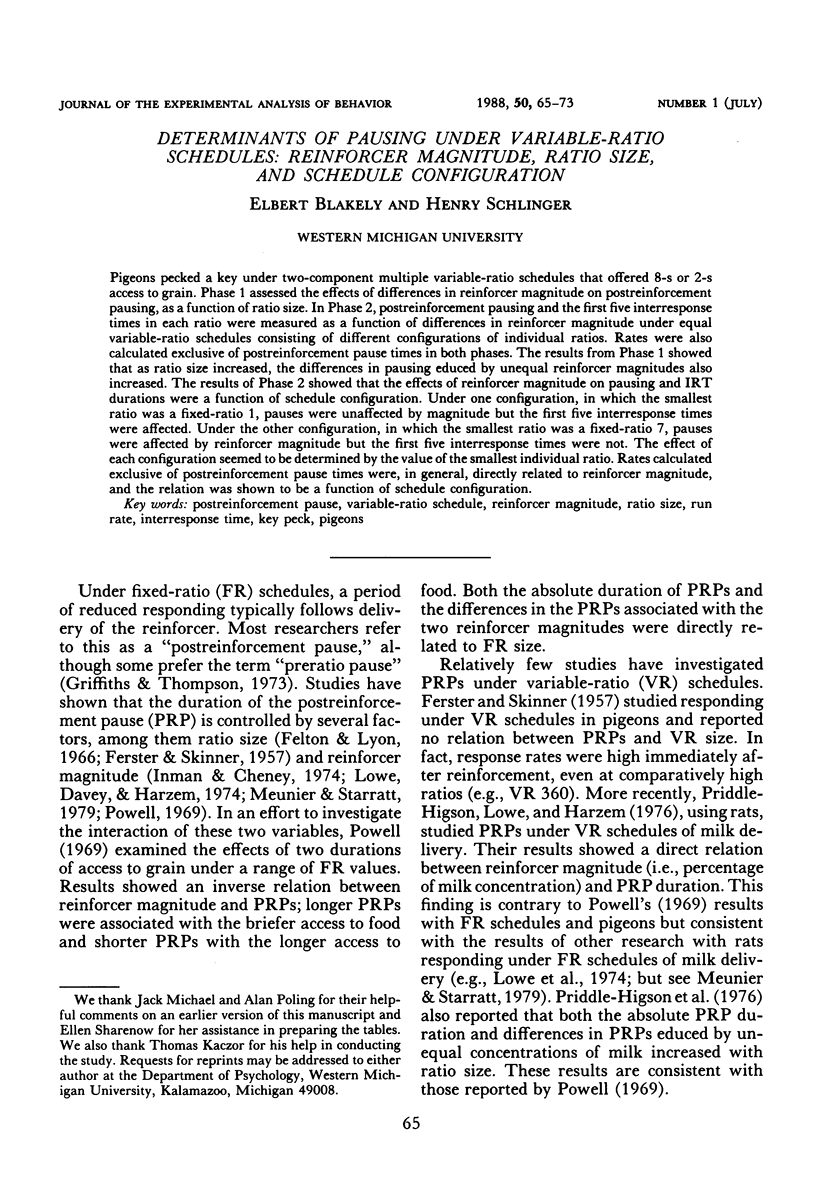
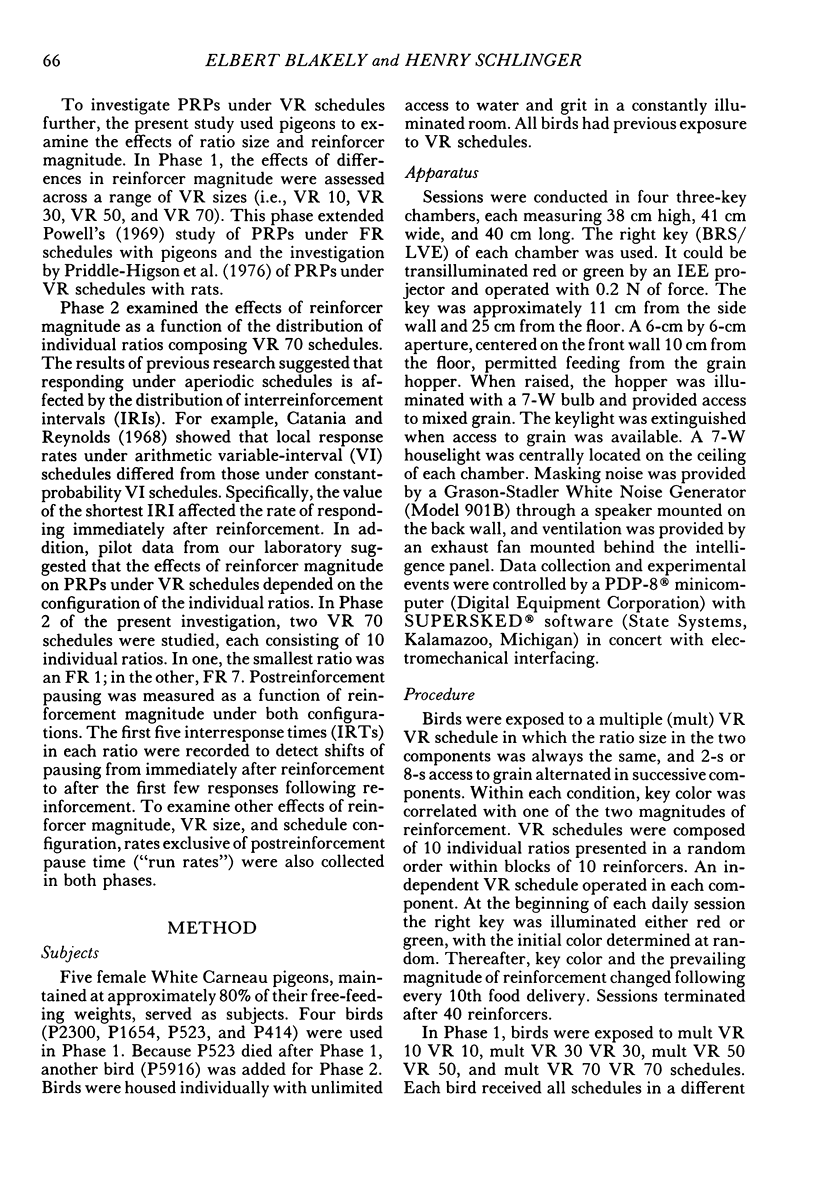
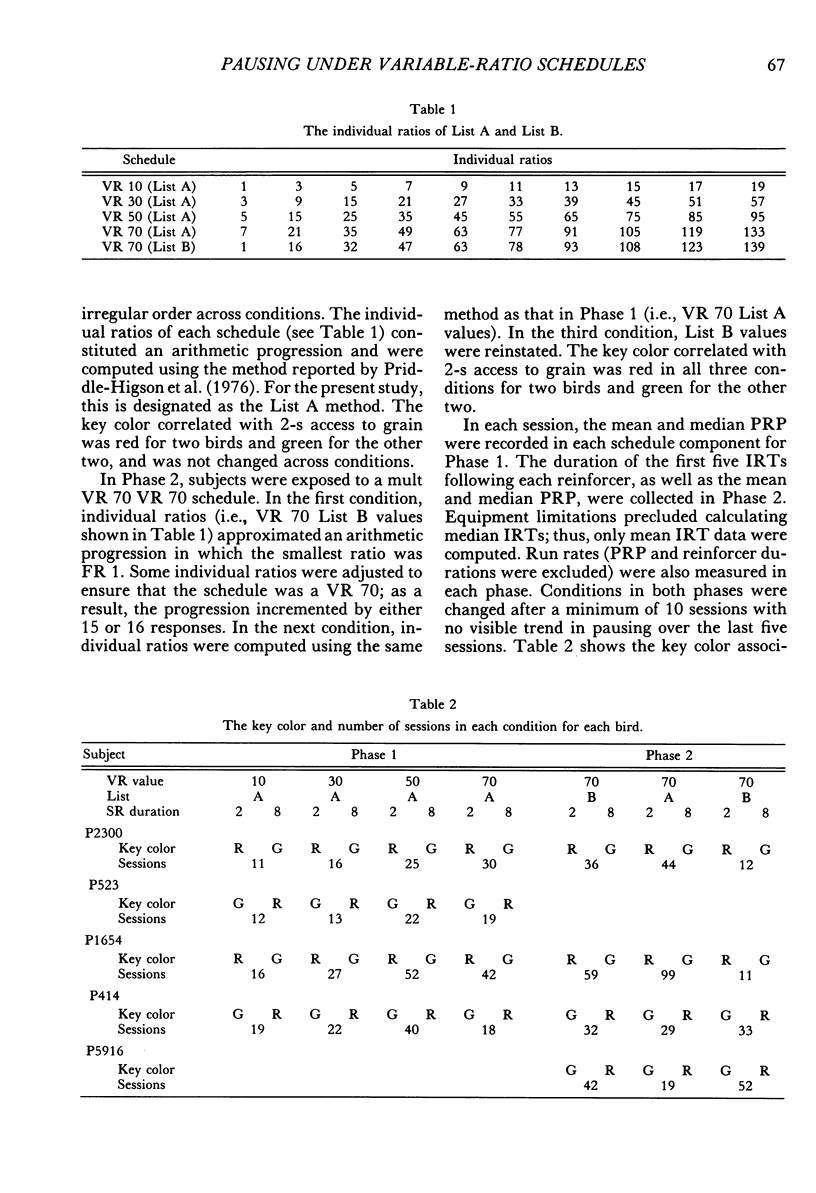
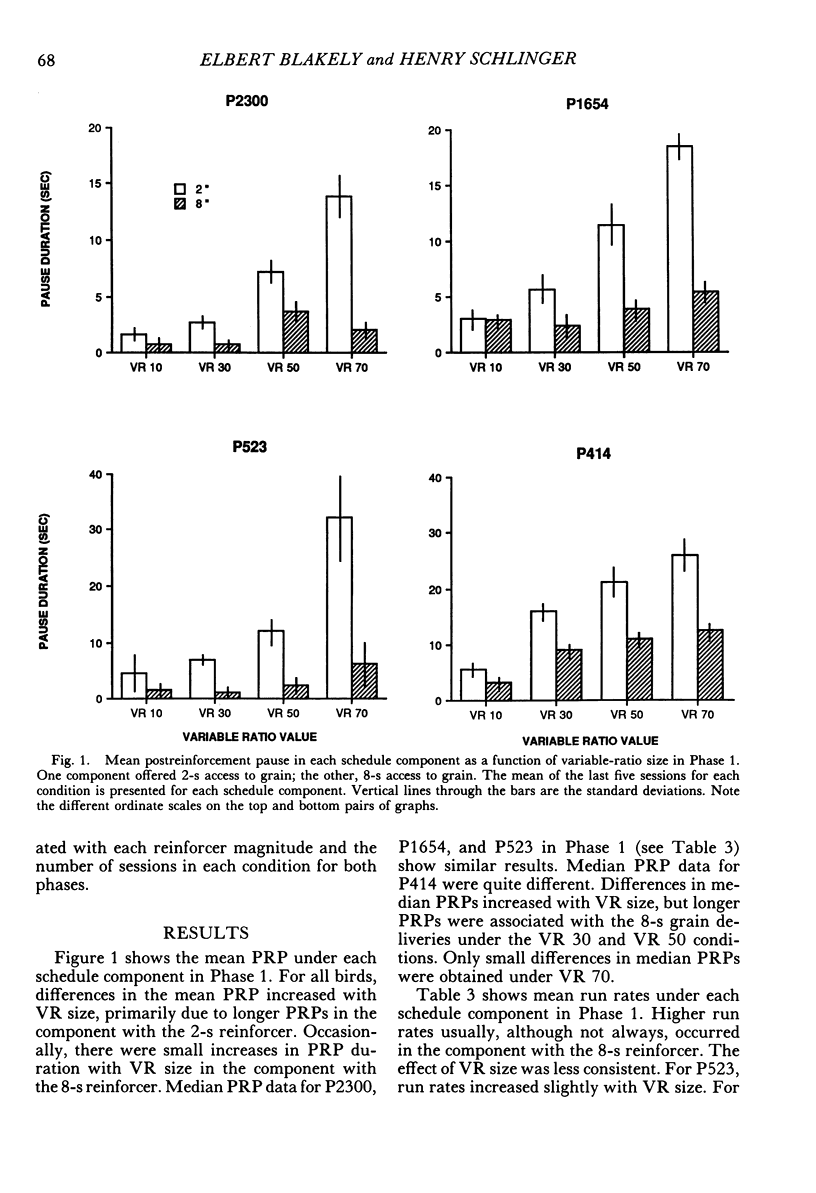
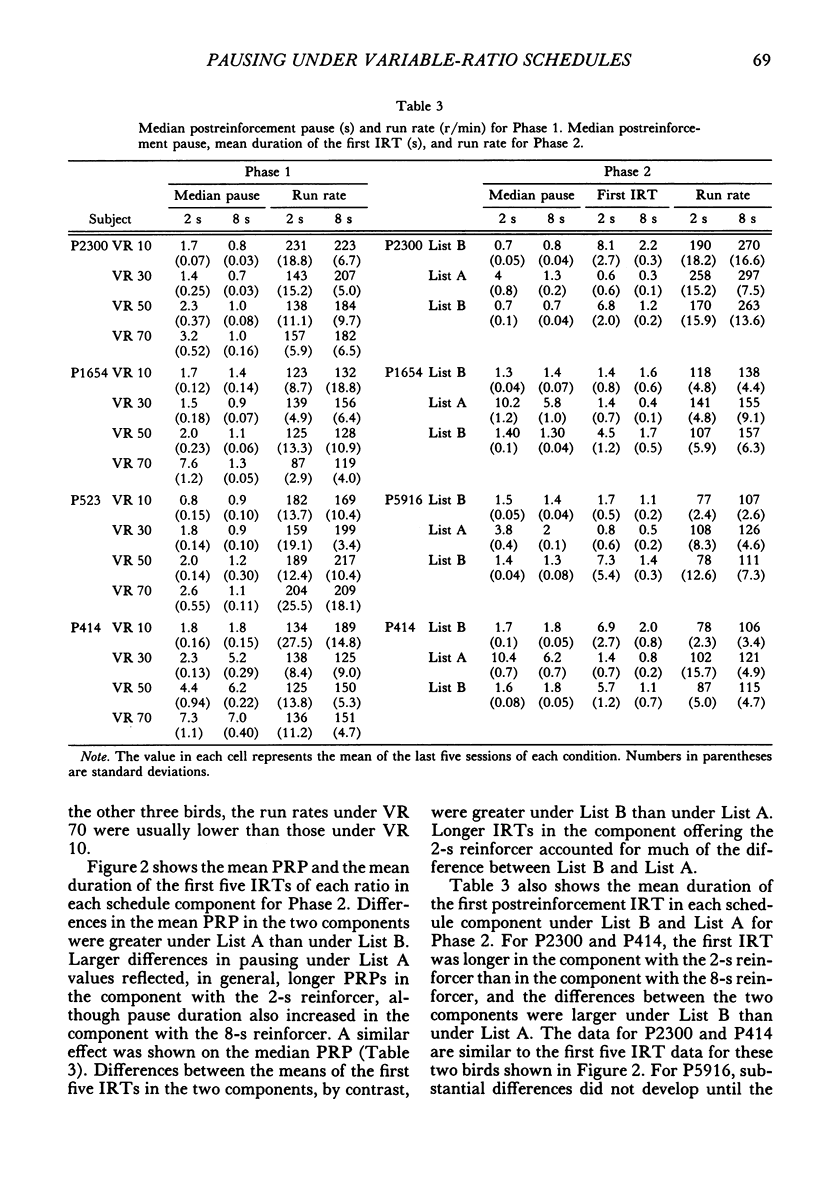
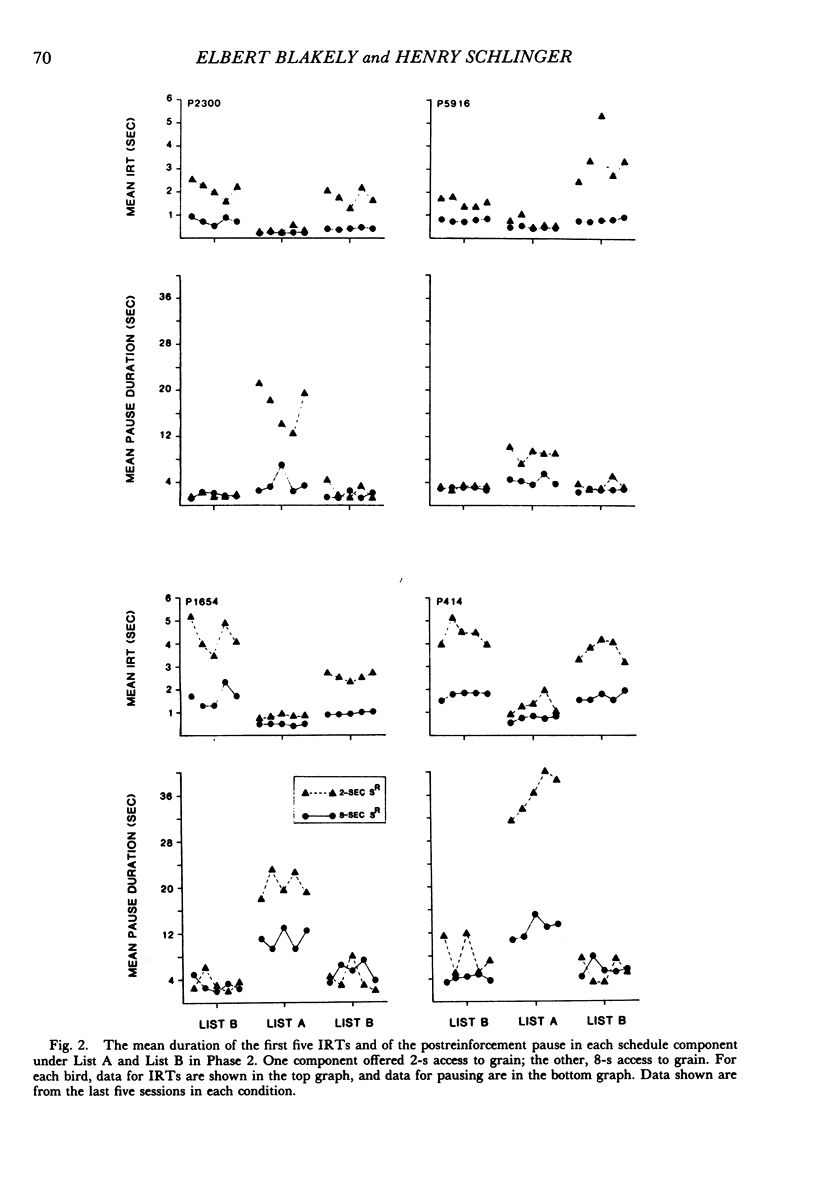
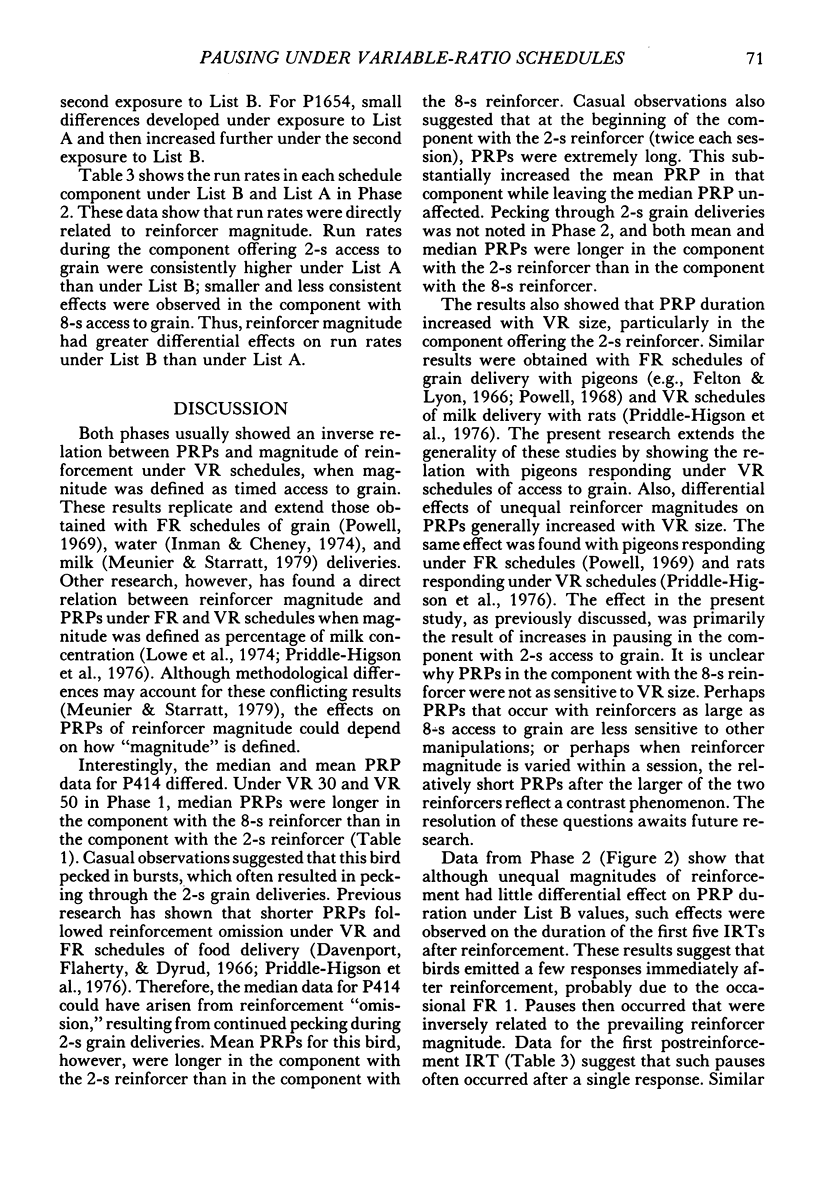
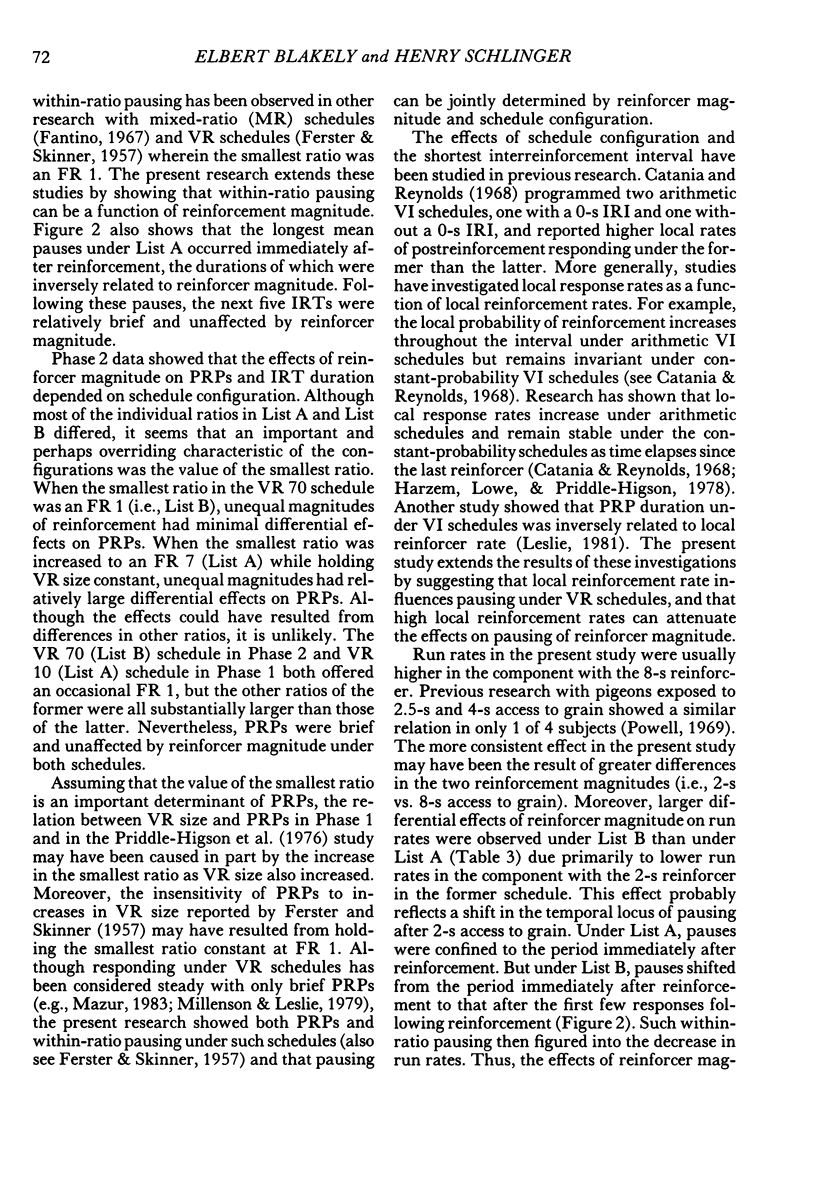
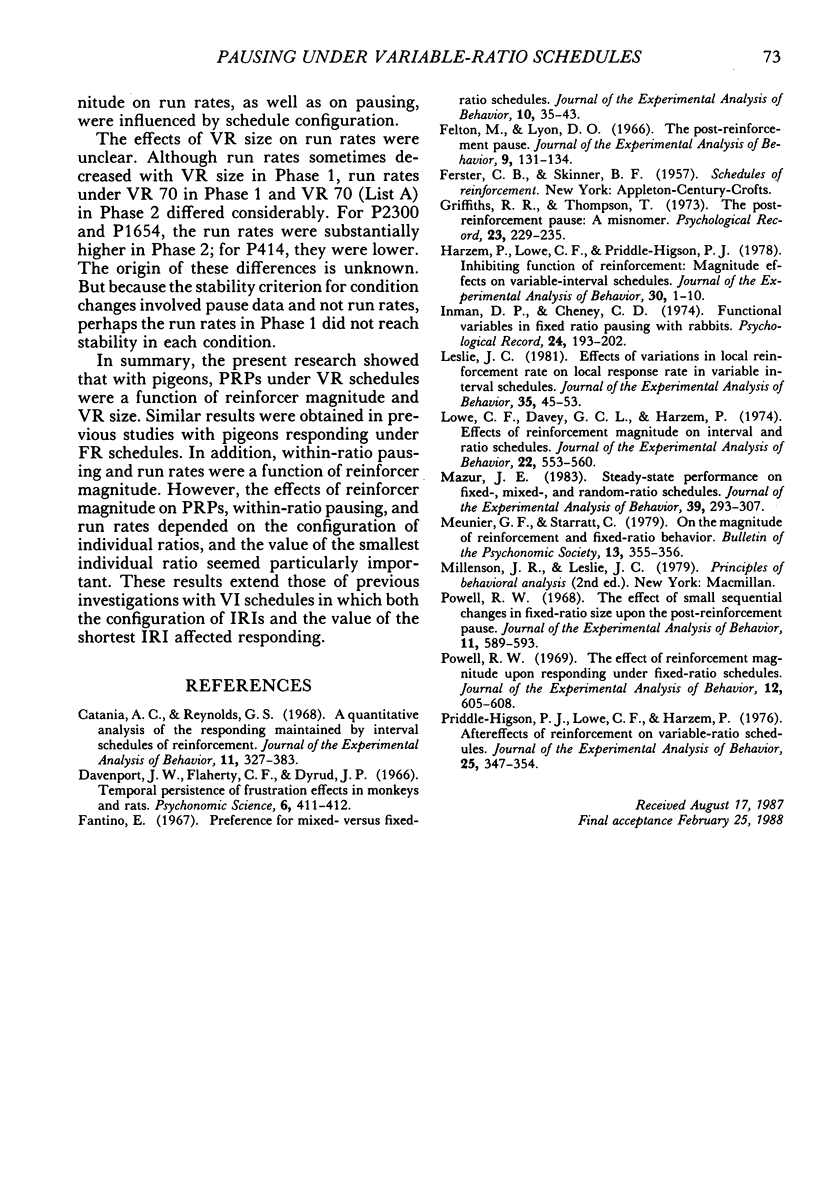
Selected References
These references are in PubMed. This may not be the complete list of references from this article.
- Catania A. C., Reynolds G. S. A quantitative analysis of the responding maintained by interval schedules of reinforcement. J Exp Anal Behav. 1968 May;11(3 Suppl):327–383. doi: 10.1901/jeab.1968.11-s327. [DOI] [PMC free article] [PubMed] [Google Scholar]
- Fantino E. Preference for mixed- versus fixed-ratio schedules. J Exp Anal Behav. 1967 Jan;10(1):35–43. doi: 10.1901/jeab.1967.10-35. [DOI] [PMC free article] [PubMed] [Google Scholar]
- Felton M., Lyon D. O. The post-reinforcement pause. J Exp Anal Behav. 1966 Mar;9(2):131–134. doi: 10.1901/jeab.1966.9-131. [DOI] [PMC free article] [PubMed] [Google Scholar]
- Harzem P., Lowe C. F., Priddle-Higson P. J. Inhibiting function of reinforcement: magnitude effects on variable-interval schedules. J Exp Anal Behav. 1978 Jul;30(1):1–10. doi: 10.1901/jeab.1978.30-1. [DOI] [PMC free article] [PubMed] [Google Scholar]
- Leslie J. C. Effects of variations in local reinforcement rate on local response rate in variable interval schedules. J Exp Anal Behav. 1981 Jan;35(1):45–53. doi: 10.1901/jeab.1981.35-45. [DOI] [PMC free article] [PubMed] [Google Scholar]
- Lowe C. F., Davey G. C., Harzem P. Effects of reinforcement magnitude on interval and ratio schedules. J Exp Anal Behav. 1974 Nov;22(3):553–560. doi: 10.1901/jeab.1974.22-553. [DOI] [PMC free article] [PubMed] [Google Scholar]
- Mazur J. E. Steady-state performance on fixed-, mixed-, and random-ratio schedules. J Exp Anal Behav. 1983 Mar;39(2):293–307. doi: 10.1901/jeab.1983.39-293. [DOI] [PMC free article] [PubMed] [Google Scholar]
- Powell R. W. The effect of reinforcement magnitude upon responding under fixed-ratio schedules. J Exp Anal Behav. 1969 Jul;12(4):605–608. doi: 10.1901/jeab.1969.12-605. [DOI] [PMC free article] [PubMed] [Google Scholar]
- Powell R. W. The effect of small sequential changes in fixed-ratio size upon the post-reinforcement pause. J Exp Anal Behav. 1968 Sep;11(5):589–593. doi: 10.1901/jeab.1968.11-589. [DOI] [PMC free article] [PubMed] [Google Scholar]
- Priddle-Higson P. J., Lowe C. F., Harzem P. Aftereffects of reinforcement on variable-ratio schedules. J Exp Anal Behav. 1976 May;25(3):347–354. doi: 10.1901/jeab.1976.25-347. [DOI] [PMC free article] [PubMed] [Google Scholar]


